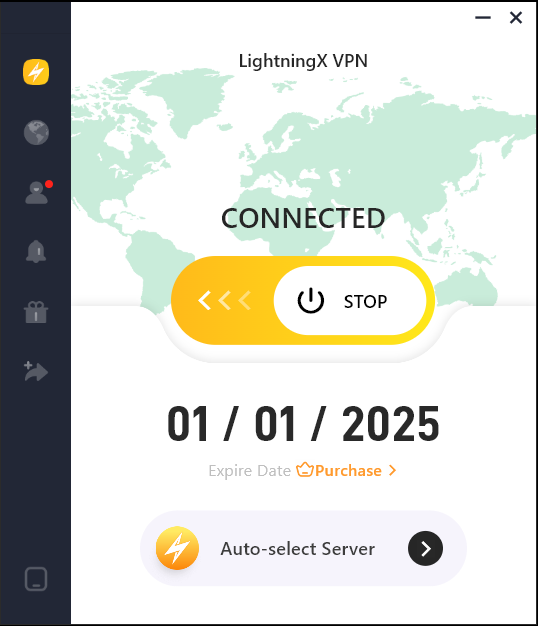Ever felt the pressure of trying to remember dozens of complex passwords? Or worse, maybe you’ve been tempted to use the same password for multiple accounts (we’ve all been there). Password managers are designed to solve these exact problems, offering a simple solution to keep your online accounts safe and your mind free from password clutter. But naturally, questions come up are password managers safe to use?
Let’s dig into what password managers are, how they work, and whether they’re worth the trust.
What Is a Password Manager?
A password manager is an app or software designed to securely store and manage your passwords. Think of it as a digital vault that not only remembers your passwords but can also generate and store complex ones for you. You unlock this vault with a single master password, which is the only one you need to remember.
When set up correctly, a password manager handles the hard work: it’ll fill in passwords for you, suggest stronger ones, and keep track of all your accounts without you having to remember each individual password.
Some even come with features like storing payment details securely, sharing access with trusted contacts, and alerting you if a password is compromised.
Why VPN Matters?
But here’s another layer to consider – for the most secure browsing, especially on public Wi-Fi or shared networks, you could pair a password manager with a reliable VPN.
Think of it as a one-two punch for online protection. A VPN, like LightningX VPN, encrypts your entire internet connection, so whether you’re browsing, streaming, or logging into your accounts, your activities are shielded from prying eyes.
To some extent, you cannot use the internet without a VPN especially when you’re on public networks, there, hackers might be lurking, trying to intercept your sensitive data.

The real beauty of using a VPN is its ability to mask your IP address and location, making it harder for anyone to track your movements online. It not only keeps your browsing private but also ensures that your passwords, stored in your password manager, stay safe.
Tip: LightningX VPN is a perfect choice for beginners, with just one click of the slide you can easily hide yourself in the jungle of the comprehensive online environment. And if you want to explore more districts, it will help you bypass these geo-restrictions and get in touch with those “off-limits”.
With 2000+ servers spread in over 50+ countries, it can meet most of your needs, especially the normal surfers. What else you cannot miss is the 7-day free trial and a 30-day money-back guarantee for its new members. So, what are you waiting for, you won’t lose anything, all you gain will just be a bunch of bonuses.
Why Do People Use Password Managers?
People often turn to password managers because managing dozens of unique, complex passwords can feel overwhelming. Here’s a look at why so many people find password managers indispensable.
- Better security: We all know we’re supposed to use unique, complex passwords for each account. Password managers make this easier by creating and storing strong, unique passwords without you having to remember each one.
- Convenience: Instead of fumbling through a notebook or trying to recall passwords, your password manager can fill in your credentials instantly. This saves time and reduces frustration – especially if you’re someone who has dozens (or even hundreds) of accounts.
- Automatic updates and alerts: Many password managers will alert you if a password has been exposed in a data breach or if it’s weak, making it easy to stay ahead of potential security threats.
Are Password Managers Really Safe?
When we’re talking about a tool that holds access to our digital lives, safety is a valid concern. The short answer is yes, password managers are generally safe to use – but like any technology, it’s essential to understand how they work and what you can do to maximize their security.
Let’s break down why password managers are safe – and some potential risks.
1. Encryption Is Key
Password managers use strong encryption to store your data securely. Most reputable managers use something called AES-256 encryption, which is the same level of security used by governments and banks.
This encryption essentially scrambles your data in a way that only your master password can unlock. So even if someone gained access to your encrypted data, they wouldn’t be able to read it without your master password.
2. Zero-Knowledge Architecture
Many password managers employ a “zero-knowledge” policy. This means that your password manager provider has no access to your master password or any of your stored data. All encryption and decryption happen on your device, not on their servers. So even if a hacker managed to break into the password manager’s database, they wouldn’t be able to access your information without your master password.
3. 2-Factor Authentication (2FA)
Most password managers support 2-factor authentication, which provides an additional layer of security. With 2FA enabled, you’ll need to provide a second form of verification (like a code sent to your phone) to access your vault. This is a huge plus because even if someone did guess your master password, they’d still need your 2FA code to get in.
4. Password Managers on Multiple Devices
Many password managers sync your vault across devices – like your phone, tablet, and computer. While this is convenient, it does open the door to potential risks if one of those devices is compromised. This is why securing each device with a strong password or biometric login (like Face ID) and ensuring you log out when not in use is crucial.
What Are the Potential Risks?
Although password managers are largely safe, there are some risks to keep in mind:
Your Master Password Is Everything
Your master password is the one thing standing between your secure vault and anyone who might want to break in. If someone gets hold of it, they could potentially access all your passwords. This is why choosing a strong, unique master password is essential – and why it’s a good idea not to write it down in an easily accessible place.
Single Point of Failure
While it’s rare, password managers can be a single point of failure. If the manager itself is compromised or you lose access to your account, recovering your passwords can be challenging. Most password managers do offer recovery options, but losing access to your vault can still be a hassle.
Data Breaches and Security Concerns
Although highly encrypted, no online service is 100% immune to attacks. However, reputable password managers are quick to fix vulnerabilities and have rigorous security practices to protect user data. Plus, even if a breach occurs, encrypted data is essentially useless without the decryption key (which is your master password).
Should You Use a Password Manager?
After all this, you may be wondering, “Is it worth it?” The answer really depends on your priorities, but for most people, the benefits far outweigh the risks. In a world where data breaches and phishing scams are common, having strong, unique passwords for each account is crucial – and a password manager is one of the easiest ways to make that happen.
Using a password manager lets you:
- Boost your internet safety by creating and storing unique passwords effortlessly.
- Simplify your life by reducing the number of passwords you have to remember.
- Stay proactive with automatic alerts and suggestions to strengthen your passwords.
For those who value convenience and security, a password manager is a smart choice. If you’re someone who tends to reuse passwords or struggles to remember complex ones, a password manager can be a game-changer.
Related: 15 Internet Safety Tips
How to Choose a Password Manager
If you’re sold on the idea, here are a few factors to consider when choosing the right password manager:
- Compatibility: Make sure the password manager works on all the devices and browsers you use.
- Security features: Look for features like AES-256 encryption, 2-factor authentication, and a zero-knowledge policy.
- Ease of use: Choose a password manager with a simple, intuitive interface so you’re more likely to use it consistently.
- Customer support: In case something goes wrong, it’s helpful to have support available.
Conclusion
So, are password managers safe to use? The answer is a solid yes – as long as you’re using a reputable one, setting a strong master password, and following best security practices. Password managers offer an effective solution to one of the biggest modern headaches: remembering countless unique passwords. They simplify your life, secure your data, and offer peace of mind in a digital world full of security threats.
















